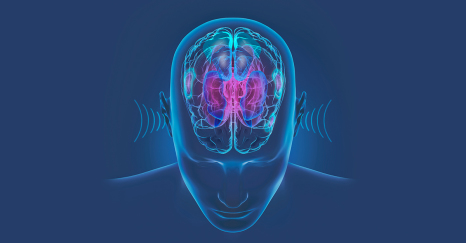We came across this article on HearingReview.com and were thrilled to hear that studies are now showing that the use of hearing aids actually reduces the risk of cognitive decline in older adults!
Continue reading to find out how..
A new long-term study that shows wearing hearing aids reduce cognitive decline associated with hearing loss may do more than just drive older adults with hearing loss to finally seek professional care, according to Oticon. The company believes the new study will also give the general public—especially health-conscious older adults—a new way of thinking about the importance of hearing care and hearing solutions that will have far-reaching implications for hearing care now and in the future.
“Self-Reported Hearing Loss: Hearing Aids and Cognitive Decline in Elderly Adults: A 25-year Study,” published in the October edition of the Journal of the American Geriatrics Society, compared the trajectory of cognitive decline among older adults who were using hearing aids and those who were not. The study found no difference in the rate of cognitive decline between a control group of people with no reported hearing loss and people with hearing loss who used hearing aids. By contrast, untreated hearing loss was significantly associated with lower baseline scores on the Mini-Mental State Examination, a well-established test of cognitive function, during the 25-year follow-up period, independent of age, gender, and education.
Professor Hélène Amieva, a leading researcher in the Neuropsychology and Epidemiology of Aging at the University of Bordeaux, France, headed up the study which followed 3,670 adults, age 65 and older over a 25-year period as part of the Personnes Agèes QUID cohort (PAQUID), a cohort specifically designed to study brain aging. Professor Amieva shared the study’s early findings at Oticon’s 2014 OtiCongress, a knowledge-sharing event that explored cognitive health and the benefits of Oticon’s BrainHearing™ technology.
“Improved communication made possible by hearing aids resulted in improved mood, social interactions and cognitively stimulating abilities and is the most likely underlying reason for the decreased cognitive decline reported in the study,” says Donald Schum, PhD, vice president of Audiology and Professional Relations for Oticon Inc. “For nearly 20 years, Oticon researchers at the Eriksholm research center have focused on the development of BrainHearing technologies that help the brain make sense of sound so that people with a hearing impairment can maintain or regain the ability and mental energy to engage socially. The study findings strengthen our commitment to a “brain first” approach to designing hearing solutions.”
Helping the Brain Make Sense of Sound
Rather than emphasize amplification and suppression of sounds, Oticon reports that its “brain first” audiological approach recognizes that speech understanding and comprehension are cognitive processes that happen in the brain. According to the company, the Inium Sense platform supports BrainHearing technology so that wearers can enjoy a fit personalized to their unique hearing loss and sound preferences for a more natural listening experience and better speech understanding with less effort.
“By targeting research on performance, effort, and energy demand, we continue to develop new hearing solutions that enable wearers to preserve energy throughout the day so they can engage more actively in everyday life,” explains Schum.
Hearing solutions with BrainHearing technologies deliver a 96% satisfaction rating for both experienced and first-time wearers when compared with a 79% industry average for typical hearing aids currently being fit to patients, according to Oticon.
Hearing Care is Health Care
The potential for the findings of the PAQUID study to increase focus on hearing health care within the boarder context of health care for healthy aging is considerable. Beyond the immediate reach to the American Geriatric Society’s 6,000 geriatrics and gerontological health professionals, the study findings will influence other health care professionals charged with improving the health, independence and quality of life of people as they age.
Oticon encourages hearing care professionals to explain the health risk of untreated hearing loss to patients as a way of motivating them to do the right thing to treat their hearing loss. “Cognitive health is a concern across all age groups but especially among older adults,” says Schum. “The PAQUID study is very important news for those people who are considering doing something about treating their hearing loss but have been delaying. It’s not just about hearing well today, it’s about the long-term effects of untreated hearing loss.”
Oticon has developed educational and community outreach materials to support hearing care professionals in increasing awareness of the connection between hearing, hearing solutions and cognition among patients and other health care practitioners in their communities.
For more information on hearing loss, cognition, and BrainHearing technology, visit brainhearing.com. Additionally, in the September 2015 edition of The Hearing Review, Oticon Director of Professional Relations Douglas Beck, PhD, guest-edited a series of articles titled “Expert Roundtable: Cognition, Audition, and Amplification: 2015” that includes perspectives from leading experts in hearing care research.
– See more at: http://www.hearingreview.com/2015/10/new-study-shows-hearing-aids-reduce-risk-of-cognitive-decline-in-older-adults/#sthash.P99LdDiX.dpuf



